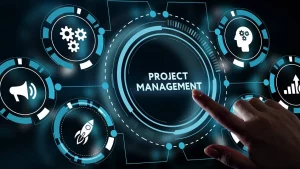Description
Description
Conflicts can be hard. We get so emotional that sometimes we feel we can’t take it at all. Do you know anyone who is good at conflict management? Do you admire them? Do you envy them? Not so surprisingly most people want to avoid conflicts altogether. Many get so emotional that they feel they can’t even say a single word. Others may rely on a simple age-old technique of silence treatment, which doesn’t really do them or others any good.
So, what should we do when we are in a conflict? Should we just leave it and hope that it goes away? The chances are that it probably doesn’t go away and will come back to haunt you. Conflicts have a tendency to escalate when untreated, they can make the environment toxic and unproductive and eventually the conflict may come to control you rather you controlling it.
Handling conflicts is much like fixing your teeth. You may put it aside, eventually go through some pain and come out of the dental surgery, relieved that it is all over. In fact, on reflection you may decide that it wasn’t that bad after all and you should have even done it sooner.
Conflicts are actually good since they push you and others to move forward in your relationship. The post-conflict result is usually more mature and you usually end up appreciating others’ point of view as well. After all, you want to arrive at a resolution that is satisfactory to all sides. Hence, conflict management skill is a must have for anyone in today’s market.
Contains a rich selection of case studies and training exercises on conflict resolution, life cycle of conflicts and mental attitudes
Course Design
The systematic design of this course facilitates understanding conflict, detecting signs of conflict escalation, responding to such signs with appropriate action and finally using effective techniques to resolve the conflict.
This course focuses on positive and productive aspects of conflicts and explains how we can benefit from situations which are often perceived as negative and destructive. Conflicts, if managed correctly, increase understanding and wisdom.
Delegates will be introduced to a variety of psychological tactics sometimes used by others as a way to create a conflict. Understanding such tactics and mind games enables one to prepare and respond effectively in order to prevent a conflict.
Delegates will also explore emotional skills critical in dealing with other people and learn how to control their emotions as well as those of others and guide the debate towards a win/win outcome.
The rich selection of scenarios and exercises in this course will help delegates to master these skills quickly and efficiently.
Training Objectives
- • Search to understand other people’s stories and learn to change your perspective based on their view to improve your conversation
- • Prevent misunderstandings by clarifying intentions and avoid common mistakes that escalate the situation rather than resolve it
- • Avoid blaming others and take responsibility for your own contribution to any situation
- • Understand and manage your feelings so they don’t clutter your understanding or affect your conversations with others
- • Handle difficult conversations by monitoring implicit messages and use techniques to gain rapport
- • Avoid destructive psychological games in conversations and use techniques to shift the conversation away as quickly as possible
Course Outline
- What Is Conflict?<br />
- • How conflicts evolve<br />
- • What is good or bad about conflicts?<br />
- • What is the life cycle of conflicts?<br />
- • How conflicts escalate<br />
- • What can you learn from Game Theory to manage conflicts?<
- How to Handle Conflicts<br />
- • How many different ways can you approach a conflict and what are their advantages and disadvantages?<br />
- • How to systematically analyse conflicts based on the benefits to you or the other party and how to use this knowledge to resolve them<br />
- • How to decline a request while avoiding conflicts<br />
- • What is an effective conflict resolution process?<br />
- • How to use a 6-step conflict resolution formula<
- How to Manage Emotions<br />
- • How emotions affect discussions<br />
- • How to avoid emotional decision making<br />
- • How to use anger management in resolving conflicts<br />
- • Learn about a series of psychological tactics used in conflicts and know how to respond to them when used on you, or exploit them yourself.<br />
- • What are the 15 main causes of conflicts?<
- How to Respond to Escalating Situations<br />
- • What approaches are used in a discussion to win the conflict?<br />
- • How to respond to such approaches when used on you<br />
- • Learn how to react to arrogance, vague statements, personality attacks, exaggerations and many other commonly used tactics in conflict.<
- How to Negotiate<br />
- • How to negotiate effectively to get to a win/win outcome<br />
- • What is Principled Negotiation?<br />
- • What is Organisational Conflict and what are the 6 ways you can use to manage it?<br />
- • How can you use well established negotiation strategies to resolve conflicts?<br />
- • How can you use third-party intervention and what types are available?<
- How to Prevent Conflicts<br />
- • What systems should be put in place in organisations to prevent destructive conflicts?<br />
- • What resources do you need to manage conflicts efficiently?<br />
- • What kind of third-party interventions exist and how can you use them to resolve conflict?




